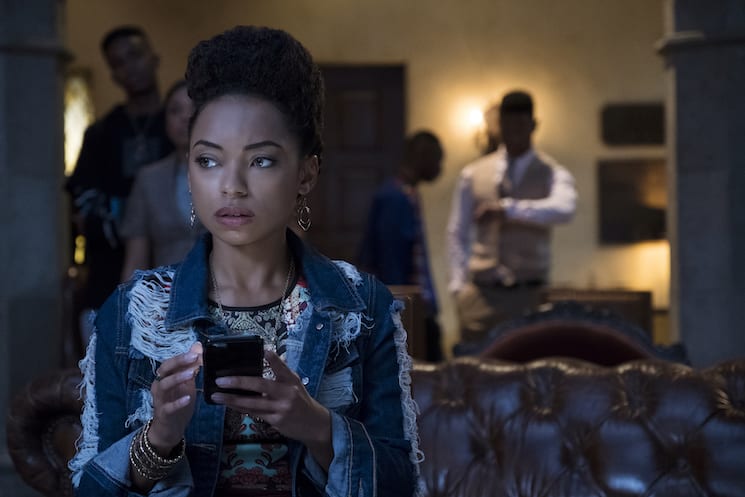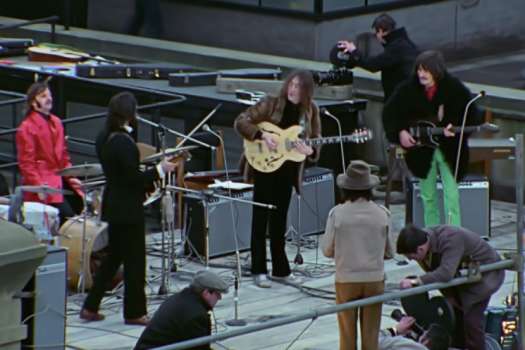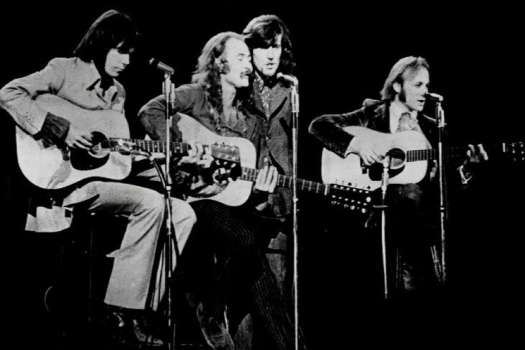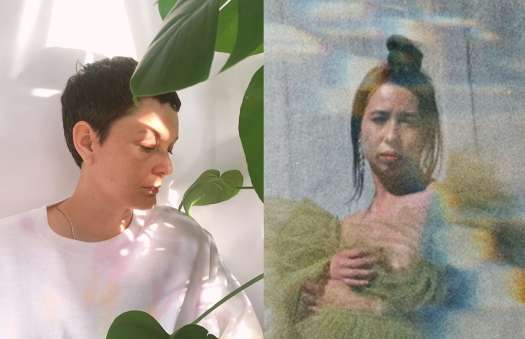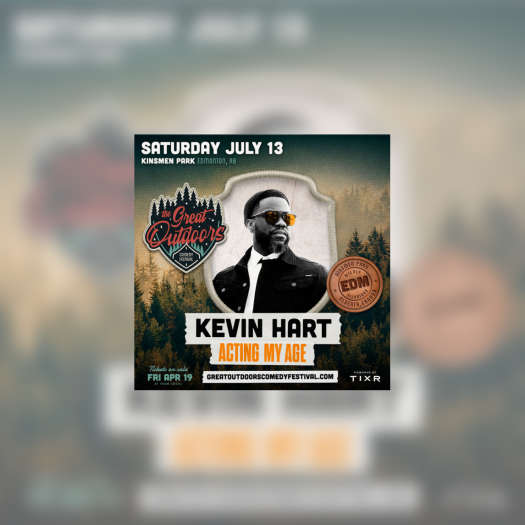In 2014, director and writer Justin Simien blew up Sundance with Dear White People — a film about racial tensions in academia set at a fictional Ivy League university. If there was one complaint about the movie, it was that Simien tried to do too much with his 108-minute runtime. As such, the Dear White People television series was a welcome adaptation, giving the auteur more room to explore the many nuances of how racism rears its ugly head in contemporary North America.
On May 4, Simien and his characters will return to Winchester University for another ten episodes. Maintaining his finger on the pulse, the show's sophomore outing sees characters engage with racism in a post-truth world where the alt-right roams free.
We caught up with Simien to discuss the show — and why its innocuous title still gets under people's skin.
Season 2 of Dear White People is about to drop — how are you feeling about it? Do you get nervous before a big project comes out?
I don't know if I get nervous as much as I get anxious. Netflix is so amorphous, so it just all goes out there at once. So, as a creator, the expected beats of when you're going to get feedback are all thrown out the window. [I'm] more just anxious to know what it will feel like when it's out. But I've been so excited and so proud of it for so long that at this point, man? I just want it to be out. I just want people to know what we've been cooking up. And I hope that it's digested and talked about with as much care as we made it. I wouldn't say it's nervousness — I'd say I'm hyper-curious.
Even when we mention the show, there's always some commenter that takes offense to the title. Do you still have a lot of people trolling you online, or has it died down?
It's definitely died down quite a bit. I would say this — I think there was genuine upset when the movie came out. I would argue that some of the upset about the show was planned outrage, to sort of empower and recruit the burgeoning alt-right movement online. A lot of it felt very fabricated to me, once I started to dig a little deeper. And there are people out there who are very upset and riled up, because some random conservative blog did a story about us, or whatever. They don't really know what they're talking about. They don't know what the show is about. They don't know one character from another.
It's frustrating, because the assumption that I would have something racist to say after "Dear white people," is one of the many assumptions about being a black person that one has to endure. There's a white creator who has a book called Stuff White People Like, which honestly is the same joke, you know what I mean? It's phrased differently, but it's the same joke. And there's no animus towards him. You know, he's a white author and it's just self-deprecating humour.
For this show, we certainly take a lot of care to consider all of the arguments. It can be a little frustrating, but it also is not news to me. It's why I made the show. There are still people out there — who think they're the first person who thought of this — that claim if there was a show called Dear Black People, it would cause riots in the street. I disagree. I don't know who riots over the name of a show. People riot when the lights go out or when someone is killed. Riots are not easy to start, people. But also, it's sort of like, I'm still waiting to figure out what's "racist" about it. I don't know. I don't know what the assumption is. Hopefully we can find it by continuing to make the show and finding out what people think that is.
The show does a great job of showing the division within a group of people who want to accomplish the same thing. That's something you see a lot on Twitter — people who are on the political left will criticize others for being too far left or not far left enough.
Very much. And I think that this season of the show, to a degree, is trying to diagnose what exactly about the conversation about race makes it so difficult to talk about. Because at the end of the day, it really feels more logical. There's a group of people in this country who statistically, and in ways that have been documented pretty meticulously, are being treated differently than everybody else. So let's all rally together because science and general human nature suggests that if we're all doing well, we all do even better. That feels like something no one would argue with, and yet here we are. What I found, time and time again, is that it comes from a lack of understanding about what got us here. There's a sort of cultural and historical amnesia that is necessary, or that we have found necessary, to teach little children about our country, and it's really done us a disservice in the area of race. Because if I'm talking to somebody about racism, and they believe I'm talking to them about prejudice, we've already messed up. We've already began the conversation wrong. Because prejudice and racism, while related, are actually referring to two different things. Little things like that have such a historical consequence, and they're steeped in things like slavery and bondage and the erasure of personal family histories — all of that happened to black people.
My favourite quote right now is from Malcolm X, who says that racism is like a knife in the back. You don't solve it by pulling the knife out or pretending like it never existed. You solve it by acknowledging the wound, and working to heal the wound. That work to heal the wound, it requires us all to come together and recognize that a wound has been left by slavery and racism, and yeah, we're still affected by it today. If we can figure out a way to talk about it calmly, we could solve it. We could solve it in our lifetimes. I don't think that we could end racism, but in terms of systemic racism — the ways in which racism affects people as part of the system that runs this country — we could actually have a positive impact on that.
Another thing you've done a great job of showcasing in Season 2 is a group of dorky white people who suddenly think they "get it." As a white person, it's extremely relatable. You read one Upworthy article or something and all of a sudden you think you're more woke than everyone else around you.
The thing I like about what we try to do about the show is sort of like, you're everybody. Even Clifton, who's one of these white kids who believes he's a bit woker than he is — we've all been Clifton. Who hasn't sort of read one book about anything, and then you feel like if anyone has any questions about this topic, you're the one they need to talk to. I feel that way every single time I read a book. Like every time I read a book on spirituality, I'm like oh my god guys, I have the answers. Every time I read a book about history, or I read a lot of nerdy stuff like evolutionary psychology and a lot of that kind of stuff. We all come to different conclusions, and the more you read the more you realize no one actually agrees with each other and this is quite a murky thing to figure out, on any topic. I wanted to show that in a human way. Not in a way that demonizes me, but in a way that makes you go, 'Okay, that's totally been me in a conversation. How dare you, Dear White People. Next scene.' That's the most uncomfortable the show should ever make you feel. It shouldn't make you feel like a bad person.
I'd be remiss if I didn't ask you for your take on Kanye West and his recent statements about slavery and Donald Trump.
That's really surprising, because he's spoken so eloquently — he has a song called "New Slaves" about the ways in which slavery continues into the present. So that's very surprising and disappointing. But also, Kanye West is a rap artist who has a single coming out. So, to some degree, I actually think the expectation that he should be any kind of expert on anything other than music, that's a little out of balance. I think one of the reasons we're in a world where someone like Donald Trump can become president is because we take outrageous people seriously when in fact maybe no one needs to ask Kanye West ever again what he believes about race. Because it's so clearly baseless and irrelevant. My feeling is that — I feel in my gut, not knowing him personally, that something wrong is happening or that something bad is happening involving him. And I don't know what that's about. I have my suspicions, but it's none of my business. And I hope he finds some kind of peace. But I do know that I'm not getting my information about race from Kanye West. Cornel West, maybe, but not Kanye. That's not the dude I'm going to to educate myself about what happened in slavery unless he has somehow received a degree in history that I was not aware of.
Well, he is "the college dropout."
You're right, he's the college dropout! What can we expect? That is sad. Well, I'll leave you with this [James] Baldwin quote, as always. He talks about oppression as not something that a country has to do to its people. It's actually something that, because it's been done so well, we start to do to ourselves. I think he is referring to people like Kanye West who, for whatever reason — whether it's financially related or mental health related, I don't know — for whatever reason is trying to get so much attention by saying these things that I don't believe he's felt, up until very recently. It's not the same Kanye West that said George Bush doesn't care about black people. Very weird.
On May 4, Simien and his characters will return to Winchester University for another ten episodes. Maintaining his finger on the pulse, the show's sophomore outing sees characters engage with racism in a post-truth world where the alt-right roams free.
We caught up with Simien to discuss the show — and why its innocuous title still gets under people's skin.
Season 2 of Dear White People is about to drop — how are you feeling about it? Do you get nervous before a big project comes out?
I don't know if I get nervous as much as I get anxious. Netflix is so amorphous, so it just all goes out there at once. So, as a creator, the expected beats of when you're going to get feedback are all thrown out the window. [I'm] more just anxious to know what it will feel like when it's out. But I've been so excited and so proud of it for so long that at this point, man? I just want it to be out. I just want people to know what we've been cooking up. And I hope that it's digested and talked about with as much care as we made it. I wouldn't say it's nervousness — I'd say I'm hyper-curious.
Even when we mention the show, there's always some commenter that takes offense to the title. Do you still have a lot of people trolling you online, or has it died down?
It's definitely died down quite a bit. I would say this — I think there was genuine upset when the movie came out. I would argue that some of the upset about the show was planned outrage, to sort of empower and recruit the burgeoning alt-right movement online. A lot of it felt very fabricated to me, once I started to dig a little deeper. And there are people out there who are very upset and riled up, because some random conservative blog did a story about us, or whatever. They don't really know what they're talking about. They don't know what the show is about. They don't know one character from another.
It's frustrating, because the assumption that I would have something racist to say after "Dear white people," is one of the many assumptions about being a black person that one has to endure. There's a white creator who has a book called Stuff White People Like, which honestly is the same joke, you know what I mean? It's phrased differently, but it's the same joke. And there's no animus towards him. You know, he's a white author and it's just self-deprecating humour.
For this show, we certainly take a lot of care to consider all of the arguments. It can be a little frustrating, but it also is not news to me. It's why I made the show. There are still people out there — who think they're the first person who thought of this — that claim if there was a show called Dear Black People, it would cause riots in the street. I disagree. I don't know who riots over the name of a show. People riot when the lights go out or when someone is killed. Riots are not easy to start, people. But also, it's sort of like, I'm still waiting to figure out what's "racist" about it. I don't know. I don't know what the assumption is. Hopefully we can find it by continuing to make the show and finding out what people think that is.
The show does a great job of showing the division within a group of people who want to accomplish the same thing. That's something you see a lot on Twitter — people who are on the political left will criticize others for being too far left or not far left enough.
Very much. And I think that this season of the show, to a degree, is trying to diagnose what exactly about the conversation about race makes it so difficult to talk about. Because at the end of the day, it really feels more logical. There's a group of people in this country who statistically, and in ways that have been documented pretty meticulously, are being treated differently than everybody else. So let's all rally together because science and general human nature suggests that if we're all doing well, we all do even better. That feels like something no one would argue with, and yet here we are. What I found, time and time again, is that it comes from a lack of understanding about what got us here. There's a sort of cultural and historical amnesia that is necessary, or that we have found necessary, to teach little children about our country, and it's really done us a disservice in the area of race. Because if I'm talking to somebody about racism, and they believe I'm talking to them about prejudice, we've already messed up. We've already began the conversation wrong. Because prejudice and racism, while related, are actually referring to two different things. Little things like that have such a historical consequence, and they're steeped in things like slavery and bondage and the erasure of personal family histories — all of that happened to black people.
My favourite quote right now is from Malcolm X, who says that racism is like a knife in the back. You don't solve it by pulling the knife out or pretending like it never existed. You solve it by acknowledging the wound, and working to heal the wound. That work to heal the wound, it requires us all to come together and recognize that a wound has been left by slavery and racism, and yeah, we're still affected by it today. If we can figure out a way to talk about it calmly, we could solve it. We could solve it in our lifetimes. I don't think that we could end racism, but in terms of systemic racism — the ways in which racism affects people as part of the system that runs this country — we could actually have a positive impact on that.
Another thing you've done a great job of showcasing in Season 2 is a group of dorky white people who suddenly think they "get it." As a white person, it's extremely relatable. You read one Upworthy article or something and all of a sudden you think you're more woke than everyone else around you.
The thing I like about what we try to do about the show is sort of like, you're everybody. Even Clifton, who's one of these white kids who believes he's a bit woker than he is — we've all been Clifton. Who hasn't sort of read one book about anything, and then you feel like if anyone has any questions about this topic, you're the one they need to talk to. I feel that way every single time I read a book. Like every time I read a book on spirituality, I'm like oh my god guys, I have the answers. Every time I read a book about history, or I read a lot of nerdy stuff like evolutionary psychology and a lot of that kind of stuff. We all come to different conclusions, and the more you read the more you realize no one actually agrees with each other and this is quite a murky thing to figure out, on any topic. I wanted to show that in a human way. Not in a way that demonizes me, but in a way that makes you go, 'Okay, that's totally been me in a conversation. How dare you, Dear White People. Next scene.' That's the most uncomfortable the show should ever make you feel. It shouldn't make you feel like a bad person.
I'd be remiss if I didn't ask you for your take on Kanye West and his recent statements about slavery and Donald Trump.
That's really surprising, because he's spoken so eloquently — he has a song called "New Slaves" about the ways in which slavery continues into the present. So that's very surprising and disappointing. But also, Kanye West is a rap artist who has a single coming out. So, to some degree, I actually think the expectation that he should be any kind of expert on anything other than music, that's a little out of balance. I think one of the reasons we're in a world where someone like Donald Trump can become president is because we take outrageous people seriously when in fact maybe no one needs to ask Kanye West ever again what he believes about race. Because it's so clearly baseless and irrelevant. My feeling is that — I feel in my gut, not knowing him personally, that something wrong is happening or that something bad is happening involving him. And I don't know what that's about. I have my suspicions, but it's none of my business. And I hope he finds some kind of peace. But I do know that I'm not getting my information about race from Kanye West. Cornel West, maybe, but not Kanye. That's not the dude I'm going to to educate myself about what happened in slavery unless he has somehow received a degree in history that I was not aware of.
Well, he is "the college dropout."
You're right, he's the college dropout! What can we expect? That is sad. Well, I'll leave you with this [James] Baldwin quote, as always. He talks about oppression as not something that a country has to do to its people. It's actually something that, because it's been done so well, we start to do to ourselves. I think he is referring to people like Kanye West who, for whatever reason — whether it's financially related or mental health related, I don't know — for whatever reason is trying to get so much attention by saying these things that I don't believe he's felt, up until very recently. It's not the same Kanye West that said George Bush doesn't care about black people. Very weird.
